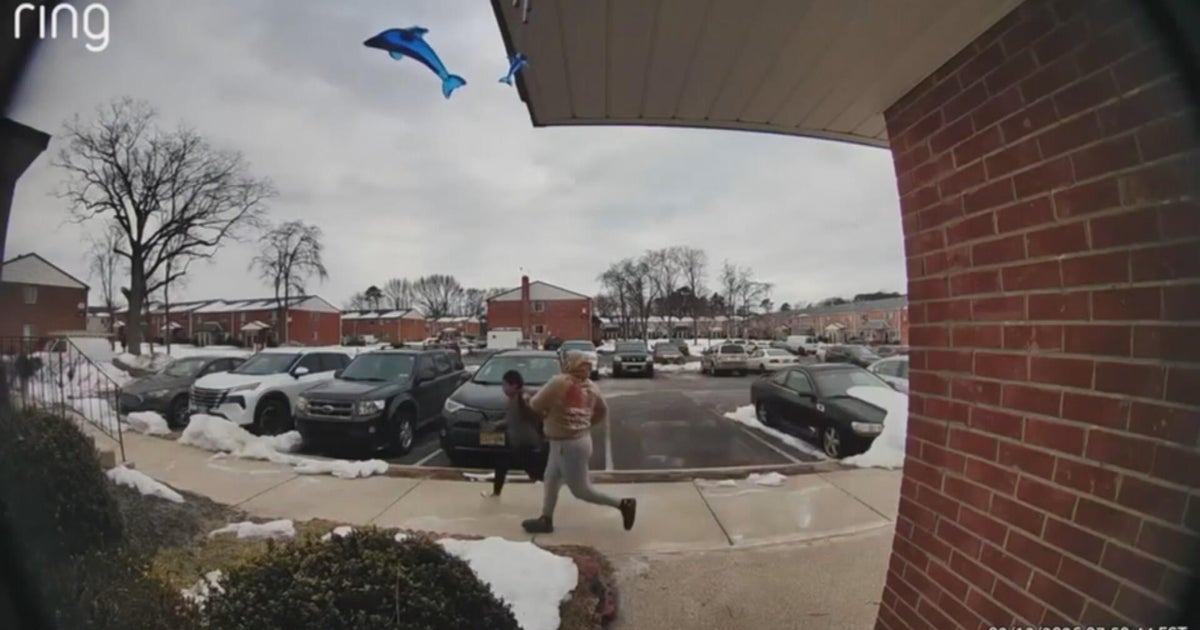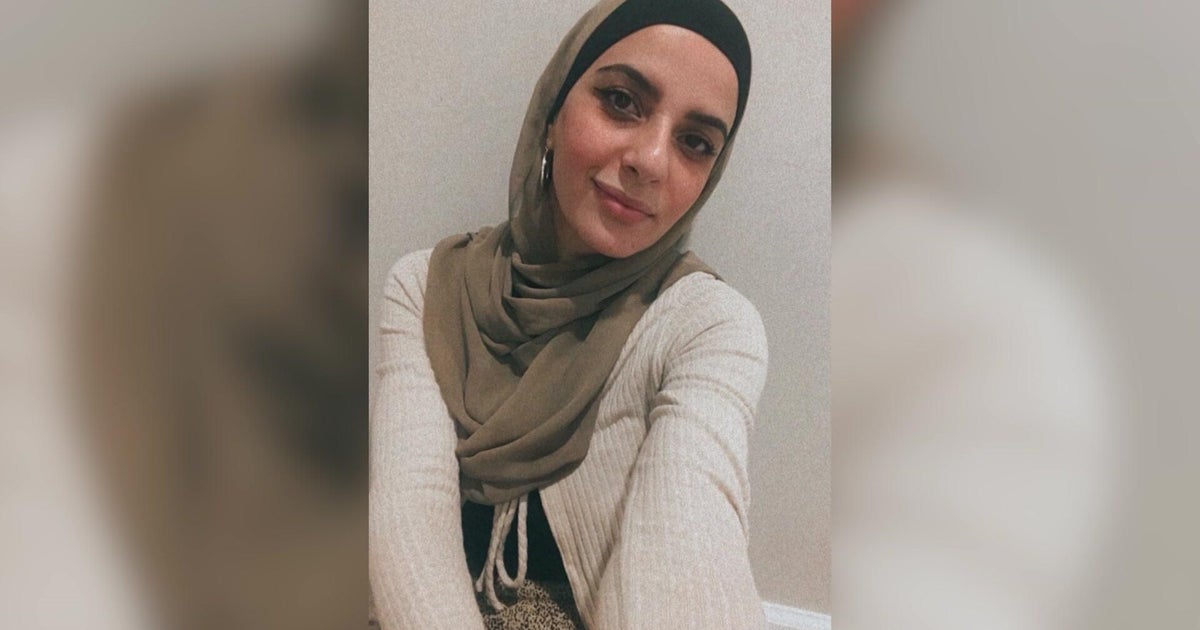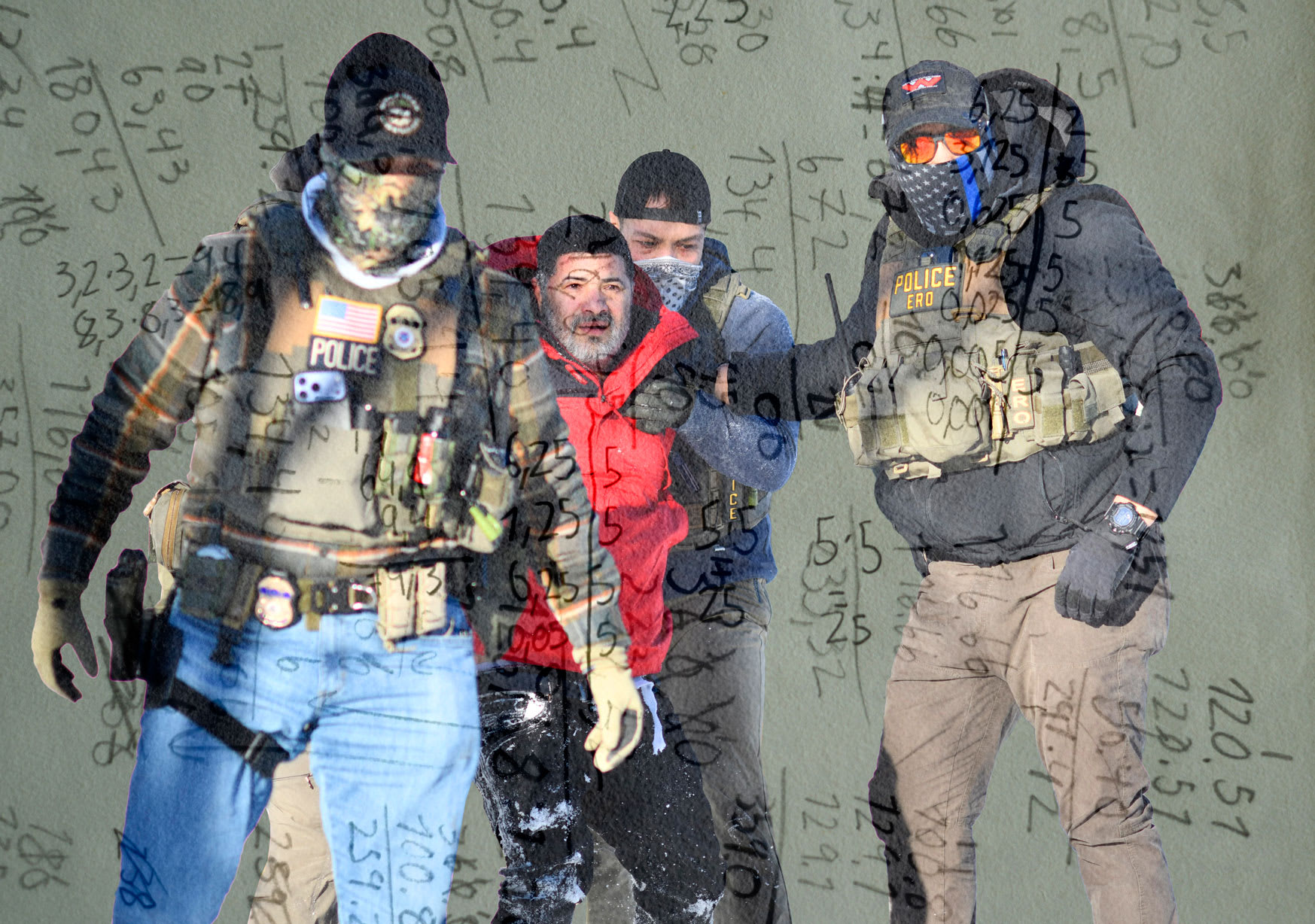Transcript: Acting CBP Commissioner Mark Morgan on "Face the Nation," July 14, 2019
The following is a transcript of the interview with Mark Morgan, the acting commissioner of U.S. Customs and Border Protection, that aired Sunday, July 14, 2019, on "Face the Nation."
MARGARET BRENNAN: We begin today with Mark Morgan. He is the acting commissioner of U.S. Customs and Border Protection, CBP, which enforces immigration law and patrols the U.S. border. Good morning to you, commissioner.
ACTING CUSTOMS AND BORDER PROTECTION COMMISSIONER MARK MORGAN: Good morning. Thanks for having me.
MARGARET BRENNAN: I understand you're at CBP. You were previously at ICE. The president has said those who will be arrested today will either be put in prison or sent back. What can you tell us about how many people will be rounded up and where they'll go?
MORGAN: So, the- the- the numbers are really going to be left up to ICE and so I really want to try to stay away from the operational details specifically and focus on the numbers or cities or where they're going to be going out. But again, I think what we need to do- part of this- this narrative is, we need to be intellectually honest when we're going forward with this, is that the individuals that ICE goes after and they do this every single day are not individuals that are here undocumented. They're individuals that are here illegally. And in this case, their part has always been, and it will be, to go after those that are criminal aliens meaning those people that are here illegally and have- and have committed additional crimes against American citizens. But also, part of that priority is to also go after and- and apply consequences and enforce the rule of law to those individuals who had due process and received a final order of removal from a judge, and they still remain here illegally. To- to maintain integrity in the system, we have to apply cuts- consequences to everyone.
MARGARET BRENNAN: So, can you say though whether there will be family separations? If someone is arrested, their children come home either they're U.S. born, or they're just coming home to find a parent who is now in detention, what happens? Can you avoid that situation?
MORGAN: So of- of course, the- the design is not about family separation. That's not the intent. Never has been and never will be. The intent is to enforce--
MARGARET BRENNAN: Can you avoid it?
MORGAN: --the rule of law. There- there are challenges. Absolutely. But I can tell you the men and women of ICE they- they are, too, American heroes. They- they're mothers, they are fathers, brothers, and sisters. They're going to apply this with- with humanity and compassion. There's a whole host of scenarios that could go. I'll give you an example. For one, if they run across a mother who came here illegally, had due process, had a order removal, but she's currently in her third trimester of pregnancy, of- of course they're not going to apprehend that individual. They're going to give her a- a paper, a notice to appear and- and come back later when it's appropriate.
MARGARET BRENNAN: Where will these people go? Because as we've been talking about and in the facilities you run, there's this crisis of overcrowding. Is ICE putting these people in centers that are already overcrowded as well?
MORGAN: No. So- and- and I'm glad you asked that question, because there's a lot of confusion with respect to the holding facilities that Customs and Border Protection hold that are meant just kind of like a police station. They're not meant to be, nor they were ever designed to be, long term holding facilities. ICE, the facilities that they have are. And so families, for example, will go to family residential centers that are specifically designed to house families on a longer term basis. And it's a very different environment than what you'll see from a CBP Border Patrol holding facility.
MARGARET BRENNAN: President Obama deported about 3 million people. President Bush, about 2 million. President Trump's far below that. But there is this question of why these arrests are happening now at a time when you have been talking about overcrowding, at a time when you're in the middle of a re-election campaign. It seems to be, to many critics, politically motivated.
MORGAN: So I can't take- speak to you from- from a political side. I can speak to you from a law enforcement side. And I can tell you, Margaret, one of the largest incentives, pull factors, for these people is you grab a kid, that is your passport into the country. And once you get in the country, you're allowed to stay. If we don't apply interior enforcement action, consequences, those- to those that have received due process--
MARGARET BRENNAN: Right, but why--
MORGAN: --they've received an idle order--
MARGARET BRENNAN: --did the president announce it? This is a law enforcement action he announced.
MORGAN: You- You'll have to ask the president on that. But alls I can tell you is, I support this one hundred percent. This is a- an essential consequence that we need to apply to help take that element away, that pull factor, so they'll stop making the dangerous trek and risking their lives.
MARGARET BRENNAN: The president, this morning, put out a series of tweets that I want to read to you, or part of. He suggested that foreign born female members of Congress need to quote, "go back," to quote, "the places from which they came." Who is the president talking about and how is this helpful if you're trying to get Democrats in Congress to work with you?
MORGAN: Again, you're gonna have to ask the president what he means by those specific tweets.
MARGARET BRENNAN: You don't know who he's talking about?
MORGAN: I- I- I think that you need to talk to the president about his specific tweets. What- what I- what I will tell you is that we absolutely have a crisis on the border one hundred percent. And Congress I- I can tell you unequivocally, Congress has failed to do what they need to do to adjust this crisis. We've been pleading with them our- for a long time and we've been on the Hill asking for a long time you fix the floor settlement agreement, you fix the TVPRA catch and release and 85 percent of this crisis ends the next day. That's what we need Congress to do on a bipartisan effort.
MARGARET BRENNAN: Which is why I asked you if it was helpful or not to make comments like that. Let me ask you about what's happening in some of the facilities that you oversee. Today the president also tweeted there have been great reviews of children's detention centers. We know the vice president went down and toured multiple facilities, one of them being a children's center. The House Oversight Committee this week released a report saying there are at least still 30 children separated from their parents for more than a year who haven't been reunited with them and have not been released to somebody else to take care of them. So do you understand why facts like that make it hard for anyone in Congress, Democrats say, to trust the administration with holding children in detention or potentially for longer periods of time as some are proposing?
MORGAN: So what- what I would say is facts matter all the way around. Neither does the rhetoric that's out there that's absolutely false. That- that--
MARGARET BRENNAN: But this is a House Oversight report.
MORGAN: Again, you said facts are important and I'm saying I agree. Facts are important. Just- just--
MARGARET BRENNAN: You agree that that is a fact? This 30- the 30 children who continue to be separated.
MORGAN: Yes, we- we've been--
MARGARET BRENNAN: Okay.
MORGAN: --talking about that for a long time and again they're- they're- making progress to reunite those families that happened a long time ago. But again what- what we're talking about now- let's talk about facts and the facts are that- that we've been asking Congress for a very long time for the supplemental, for example, right? Because we've agreed that children should not be in facilities that Border Patrol have. They're holding facilities. They were never designed for kids.
MARGARET BRENNAN: That's the four and a half billion that was just approved.
MORGAN: Yes- yes ma'am. And so- so the four and a half billion we've been asking- three and a half billion of that went to HHS. I- I'm not in that department but yet I'm asking for the supplemental to- to get HHS the funding they need, so the children, for example, could get out of the Border Patrol holding facilities where they don't belong. We were- we were asking that for months. And Congress sat on their hands--
MARGARET BRENNAN: Right.
MORGAN: --and didn't provide that funding.
MARGARET BRENNAN: Well, that funding you do have now. The vice president said--
MORGAN: And it's working.
MARGARET BRENNAN: --on this--
MORGAN: And it's working.
MARGARET BRENNAN: --on this program two weeks ago that some of these- some of these conditions are unacceptable. We have video of the tour that he went on as well where he saw where men are being held, different facility than where the children are. And I want to read from the pool report written by Washington Post Josh Dawsey. Said, "the cages were so crowded it would have been impossible for all of the men to lie in the concrete. There were three hundred and eighty four single men in the portal, no mats or pillows, some sleeping on concrete. When they saw the press arrive, the men began shouting and wanted to tell us they'd been in there 40 days or longer. They were hungry and wanted to brush their teeth. It was sweltering hot. Agents were wearing face masks." Are these acceptable conditions?
MORGAN: So, first of all, the- the way to describe those conditions, I would not describe them as- as they were described. But- but even- even so--
MARGARET BRENNAN: This was the video.
MORGAN: No. You- you're--
MARGARET BRENNAN: This was the video and this is a reporter's eyewitness account.
MORGAN: Right. So I- I would not consider that sweltering hot. I was there alongside the vice president when I was there. But make no mistake, was it overcrowded? Absolutely. But Margaret, we've been saying that for a very long time that these conditions are overcrowded.
MARGARET BRENNAN: So you agree it's unacceptable?
MORGAN: Oh, absolutely it's unacceptable. And- and--
MARGARET BRENNAN: So what are you doing to change those conditions now?
MORGAN: So--
MARGARET BRENNAN: As you said that funding has been approved.
MORGAN: Okay, but- but this is very important though is this could have been prevented in- in a couple of ways. Had Congress given the funding earlier than- than when we ask it would have helped alleviate some of the overcrowding.
MARGARET BRENNAN: But now--
MORGAN: The other thing right now is we're con- continuing to ask Congress. We need legislative fix. We need Congress to act right now. Senator Lindsey Graham has a bill that he's trying to push forward right now that would absolutely overnight help eliminate that- what you saw when we went down there with the vice president. Congress needs to act. They know it--
MARGARET BRENNAN: Yes.
MORGAN: --and they're failing to do so.
MARGARET BRENNAN: We're going to talk to Senator Dick Durbin next. Thank you commissioner who is working with.



